Protein plays a crucial role in healthy ageing, helping men over 50 maintain muscle mass, strength, and overall function. As we age, the body becomes less efficient at using protein, a process called anabolic resistance, making higher protein intake essential. Experts recommend around 1.6 grams per kilogram of body weight per day, paired with regular strength training, to support muscle health, metabolism, and vitality. Including a variety of protein-rich foods in your weekly diet not only preserves muscle but also supports bone health, heart function, and overall well-being, helping you stay active and strong as you age.
Best protein-rich foods for men over 50 to eat every week
Sardines
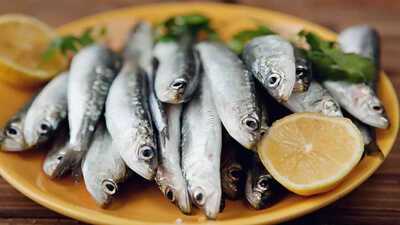
According to the US Department of Agricultur, sardines are small, oily fish packed with nutrients, offering about 18 grams of protein per 75-gram can. They are also rich in omega-3 fatty acids, vitamin D, vitamin B12, calcium, and potassium—nutrients that support heart, bone, and overall health. Sardines are convenient, affordable, and versatile, making them easy to add to salads, sandwiches, or pastas. For variety, fatty fish like salmon, mackerel, or anchovies can provide similar benefits while keeping your meals interesting.
Cottage cheese
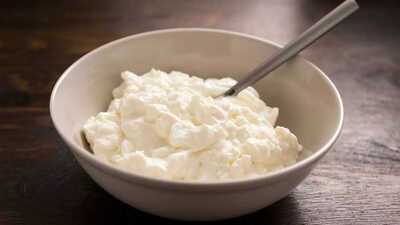
Cottage cheese is an excellent source of slow-digesting casein protein, providing about 25 grams per cup. It can be enjoyed at breakfast, as a snack, or before bed to support muscle recovery overnight. Casein protein helps maintain muscle mass while promoting satiety, making cottage cheese a practical choice for men over 50 looking to meet their protein needs. Adding fruits, nuts, or herbs can also enhance its taste and nutritional value.
Eggs
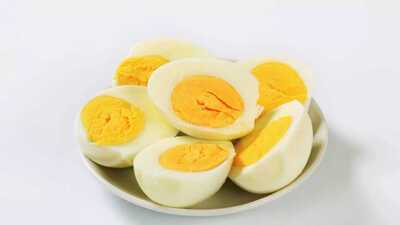
According to a study published in the Journal Nutrients, eggs are a nutritional powerhouse, with two eggs providing around 12 grams of high-quality protein. They contain all essential amino acids and important nutrients such as choline, lutein, zeaxanthin, and vitamins A, B12, D, E, and K. Eggs are highly versatile, suitable for omelets, salads, sandwiches, or as additions to soups and stews. Their ease of preparation and nutrient density make them a cornerstone of a protein-rich diet for older men.
Legumes

Legumes, including beans and lentils, are an often overlooked source of protein, providing about 8 grams per half-cup serving. They are rich in fiber, support heart and gut health, and have anti-inflammatory properties. Legumes can be incorporated into soups, stews, salads, or combined with meat in taco bowls and pasta dishes. They are also excellent in plant-based or meatless meals, offering both protein and complex carbohydrates for sustained energy.
Milk
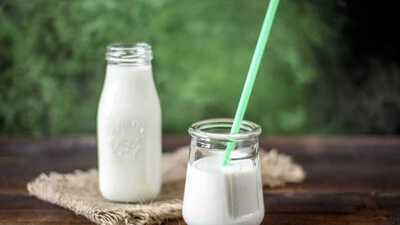
Milk is a simple and nutrient-dense way to add protein to your diet, offering 8 grams per cup. It also provides calcium, phosphorus, and vitamin D, which are crucial for bone and muscle health. For those who are lactose-intolerant, lactose-free milk or fortified soy milk can be good alternatives. Milk can be consumed directly, added to coffee, cereal, smoothies, or protein shakes, making it a versatile choice for daily nutrition.
Tofu
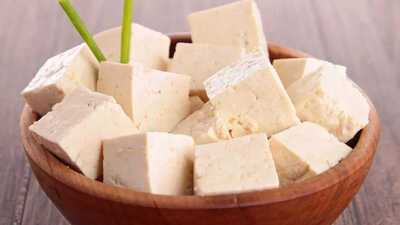
Tofu is a complete plant-based protein with all essential amino acids, offering 17 grams per 100 grams. It also provides calcium, phosphorus, and plant-based iron. Pairing tofu with vitamin C-rich foods, such as bell peppers or tomatoes, can enhance iron absorption. Tofu’s versatility allows it to be used in stir-fries, soups, salads, or grilled dishes, making it a nutritious alternative to meat.
Chicken
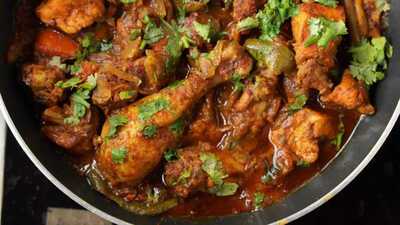
Chicken is another excellent protein choice, providing around 23 grams per 100 grams of cooked meat, particularly with the skin removed. It is low in fat, versatile, and can be added to salads, soups, sandwiches, or main courses. Lean chicken supports muscle maintenance and overall health, making it a reliable option for men over 50.
Alongside a high-protein diet, lifestyle habits significantly impact healthy aging. Strength training is essential for maintaining muscle mass and reducing the risk of frailty. Social connection is also important for well-being, exercising with friends or family can promote both fitness and meaningful interaction. Additionally, spending time outdoors lowers stress and improves mental health. Walking, gardening, or outdoor hobbies can complement your nutrition and exercise routines, contributing to a longer, healthier life.
Also Read: Don’t eat these 7 foods if you’re prone to cold sores
Best protein-rich foods for men over 50 to eat every week
Sardines
According to the US Department of Agricultur, sardines are small, oily fish packed with nutrients, offering about 18 grams of protein per 75-gram can. They are also rich in omega-3 fatty acids, vitamin D, vitamin B12, calcium, and potassium—nutrients that support heart, bone, and overall health. Sardines are convenient, affordable, and versatile, making them easy to add to salads, sandwiches, or pastas. For variety, fatty fish like salmon, mackerel, or anchovies can provide similar benefits while keeping your meals interesting.
Cottage cheese
Cottage cheese is an excellent source of slow-digesting casein protein, providing about 25 grams per cup. It can be enjoyed at breakfast, as a snack, or before bed to support muscle recovery overnight. Casein protein helps maintain muscle mass while promoting satiety, making cottage cheese a practical choice for men over 50 looking to meet their protein needs. Adding fruits, nuts, or herbs can also enhance its taste and nutritional value.
Eggs
According to a study published in the Journal Nutrients, eggs are a nutritional powerhouse, with two eggs providing around 12 grams of high-quality protein. They contain all essential amino acids and important nutrients such as choline, lutein, zeaxanthin, and vitamins A, B12, D, E, and K. Eggs are highly versatile, suitable for omelets, salads, sandwiches, or as additions to soups and stews. Their ease of preparation and nutrient density make them a cornerstone of a protein-rich diet for older men.
Legumes

Legumes, including beans and lentils, are an often overlooked source of protein, providing about 8 grams per half-cup serving. They are rich in fiber, support heart and gut health, and have anti-inflammatory properties. Legumes can be incorporated into soups, stews, salads, or combined with meat in taco bowls and pasta dishes. They are also excellent in plant-based or meatless meals, offering both protein and complex carbohydrates for sustained energy.
Milk
Milk is a simple and nutrient-dense way to add protein to your diet, offering 8 grams per cup. It also provides calcium, phosphorus, and vitamin D, which are crucial for bone and muscle health. For those who are lactose-intolerant, lactose-free milk or fortified soy milk can be good alternatives. Milk can be consumed directly, added to coffee, cereal, smoothies, or protein shakes, making it a versatile choice for daily nutrition.
Tofu
Tofu is a complete plant-based protein with all essential amino acids, offering 17 grams per 100 grams. It also provides calcium, phosphorus, and plant-based iron. Pairing tofu with vitamin C-rich foods, such as bell peppers or tomatoes, can enhance iron absorption. Tofu’s versatility allows it to be used in stir-fries, soups, salads, or grilled dishes, making it a nutritious alternative to meat.
Chicken
Chicken is another excellent protein choice, providing around 23 grams per 100 grams of cooked meat, particularly with the skin removed. It is low in fat, versatile, and can be added to salads, soups, sandwiches, or main courses. Lean chicken supports muscle maintenance and overall health, making it a reliable option for men over 50.
Alongside a high-protein diet, lifestyle habits significantly impact healthy aging. Strength training is essential for maintaining muscle mass and reducing the risk of frailty. Social connection is also important for well-being, exercising with friends or family can promote both fitness and meaningful interaction. Additionally, spending time outdoors lowers stress and improves mental health. Walking, gardening, or outdoor hobbies can complement your nutrition and exercise routines, contributing to a longer, healthier life.
Also Read: Don’t eat these 7 foods if you’re prone to cold sores
You may also like

Elon Musk issues shocking warning on US birth rate decline: 'The population is collapsing…,' Tim Pool highlights economic and global risks

'No elections during war': Donald Trump's jibe at Zelenskyy over Ukraine polls; jokes about starting a conflict in US

New air link: Fly Baghdad launches new direct flights to Salalah, boosting Oman-Iraq travel

Houses inundated, villages cut off as incessant rains batter Thane, Palghar

Opposition parties announce former SC judge B Sudhershan Reddy as VP candidate







